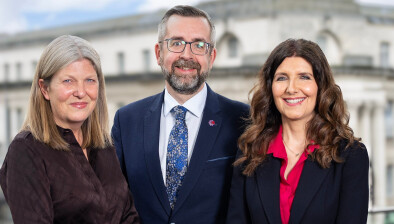High Court: Well-charging relief granted despite inadequate particulars of debt in special summons

The High Court has granted a declaration that certain monies owed by defendants to a plaintiff on foot of a mortgage loan were well-charged against a property despite the court not being satisfied that adequate particularisation of the underlying debt had been provided.

About this case:
- Citation:[2022] IEHC 581
- Judgment:
- Court:High Court
- Judge:Ms Justice Emily Egan
On the evidence in the case, Ms Justice Emily Egan held that only the principal monies were well-charged and deducted the interest from the total monies owed.
Further, the court held that the plaintiff was not entitled to rely on a solicitor’s undertaking to claim that an equitable mortgage had been created. The undertaking provided that the solicitor would hold title deeds on trust for the bank, but the plaintiff failed to explain the circumstances of how the undertaking was provided five years before the relevant loan facility.
Background
In August 2002, a then-solicitor for the defendants gave an undertaking in favour of Ulster Bank to hold title deeds on trust for the bank. The undertaking was given in consideration for a loan which allowed the defendants to discharge earlier third-party mortgages. The undertaking related to Apartment 43 in Dubh Carraig, Ardmore.
Five years later, in September 2007, the bank provided a loan facility in the sum of €190,000 to the defendants, which was stated to be a top up on an original €100,000 loan to develop property. Security for the loan was a first legal charge over Apartment 43 in Dubh Carraig.
No mortgage was executed over the property. The loan facilities were transferred to the plaintiff following a loan sale in December 2016. It was claimed that the 2002 undertaking and the 2007 loan facility created an equitable mortgage over the property. As such, the plaintiff claimed that €255,000 was well-charged against the defendant’s interests in the property.
In opposing the application, the second defendant asserted that the proceedings were statute-barred due to the undertaking being given in 2002. The second defendant also took issue with the global deed of transfer from the bank to the plaintiff and claimed that the bank had benefitted from a breach of accounting standards so as to be guilty of fraud (see RBS v. Highland Financial Partners LTD and Others [2013] EWCA Civ. 328).
High Court
Ms Justice Egan began by outlining her refusal to adjourn the proceedings to allow the second defendant to advance the claims under RBS v. Highland. The defendant wished to adduce evidence from an English barrister but this was unnecessary as the court did not need expert evidence to deal with matters of Irish law, the court held. There was no suggestion that the RBS v. Highland decision was of any assistance where it concerned the wrongdoing of a different financial institution.
Turning to the substantive application, the court observed that the solicitor’s undertaking was not sufficiently clear to create an equitable mortgage over the property (ACC v. Malocco [2000] 3 IR 191 considered). It was not clear that any of the funds advanced pursuant to the undertaking remained outstanding, with no averment being made by the plaintiff to this effect. As such, there was no evidence of the debt which was alleged well-charged to the equitable mortgage.
Further, the undertaking did not clearly identify the property, since a map attached to the undertaking referred only to 1-42 Dubh Carraig. Number 43 was not clearly included, the court held.
Additionally, the court noted the difficulty with the plaintiff relying on the undertaking which was given in 2002. Proceedings only issued in 2019, meaning that the plaintiff did not meet the 12-year limitation period to take an action. As such, the plaintiff could not rely on the undertaking to ground the claim.
Next, the court considered the 2007 loan facility. It was well-established that an advance of money to create a legal mortgage could manifest in equitable interest in a property. However, the court was not satisfied that the full amount which was sought to be well-charged was due and owing. The court noted that the summons did not comply with the requirement for full particularisation of the debt and, in fact, there was a “complete lack of detail as to how the interest claimed is calculated”.
Despite this issue, the court held that the defendants had not raised any objection on the point and it would be unjust to deny relief in those circumstances. Further, the defendants did not deny that the principal amount in the 2007 loan facility had been advanced and remained outstanding.
The court commented that it was surprising that the plaintiff had not attempted to amend its special summons to reflect the decision in Bank of Ireland Mortgage Bank v. O’Malley [2019] IESC 84. Since there was no evidence of how the interest had been calculated, the court stated that there could be no objection to an order which excluded interest.
Conclusion
The court granted a declaration that the principal sum of €190,000 stood well-charged against the defendants’ interests in the property.
Promontoria (Oyster) DAC v. O’Sullivan and Anor. [2022] IEHC 581











